Interview with Christiane Laibach, KfW Executive Board member, on the occasion of the UN Climate Change Conference in Dubai (COP28) on climate change and biodiversity, and their importance for KfW Development Bank.
You once said that you felt strongly about the issues of climate and sustainability. Why is that?
CHRISTIANE LAIBACH: Climate and sustainability are major global issues that will have a decisive impact on our lives today and in the years and decades to come. This applies to us as individuals, to societies, but also to KfW, which sees itself as a climate and sustainability bank because it actively supports and drives this change. And this also applies in times of multiple crises that we are currently experiencing, whether it is the conflict in the Middle East or the Russian war of aggression in Ukraine.
The resolutions on how to shape this change have been in place for eight years, for example the Paris Climate Agreement, but there is a lack of implementation in many countries. Is there more movement now?
There is a danger that the issue will be pushed into the background in view of the various crises that are superimposed on each other, which I have just mentioned. On the one hand, this is understandable because we all tend to always solve the next problem. However, we must not lose sight of the long-term challenges of climate protection and biodiversity conservation.
Christiane Laibach

Christiane Laibach has been a member of the KfW Executive Board since June 2021, and is responsible for international financing. She has spent over thirty years at KfW and was most recently Chair of the Management Board at KfW subsidiary DEG. Before that, she was a member of the Management Board at KfW’s other subsidiary, KfW IPEX-Bank. She has a degree in economics and many years of experience in leadership positions in export, project and development financing.
Read moreWhat do you hope from the Climate Change Conference in Dubai?
We need concrete, resilient and at the same time ambitious targets from the member states. The ones that are already in place are a good step, but they are not enough. National climate protection contributions have recently become more ambitious. This is shown by the latest data from the Intergovernmental Panel on Climate Change, which is of course encouraging. But this is still not enough to achieve the 1.5-2 degree target. We are currently at around 2.8 degrees of warming, taking all national climate protection contributions together. I therefore hope that the climate summit - despite all the other challenges - will bring about further tangible progress in implementation, for example with the new "Loss and Damage" fund. It is intended to provide developing countries with rapid assistance in the event of disasters caused by climate change. It is important that the COP makes progress in the further development of this fund and sends a credible political signal that the Paris path is irreversible. So that implementation can be further accelerated in the current decade.
Many young people in particular do not believe that progress is happening quickly enough. How would you respond to them?
Firstly, I say to them that I welcome their commitment, as long as it is non-violent, because they keep putting pressure on all those responsible. In my opinion, the reason why things are still not moving faster is that we are facing a transformation that is very demanding, challenging and complex. It requires a good interplay of politics, framework conditions, regulations, the right incentives and sufficient funding. Technical progress is also still needed, for example in aviation and shipping. goals.
World Climate Conference in Dubai (COP28)
In December 2023, the Parties to the Framework Convention on Climate Change will meet in Dubai (UAE) for the UN Climate Conference, COP (Conference of the Parties) 28. COP28 is intended to advance the implementation of the Paris Climate Agreement. Because the global community is not on track to achieve its self-imposed goal of limiting global warming to 1.5 degrees.
COP28 DubaiHow seriously do developing countries and emerging economies take climate action?
The awareness is there. And we are seeing, for example, a clear shift towards renewable energies almost everywhere in the world. The lower costs of wind and solar energy, for example, are facilitating the spread of sustainable technologies. Incidentally, the IEA is predicting a new record for the expansion of renewable energies this year, which is set to be surpassed in 2024. Many developing countries are now also increasingly focussing on renewable energies. Firstly, because they have great potential. In addition, the issue of energy security plays a role here that should not be underestimated. In other words, the direction is clear and the path has been taken. But fundamentally, poorer regions of the world have to contend with many challenges, currently above all with growing hunger, a generally deteriorating global economy and rising mountains of debt. This makes it all the more important that they receive international support.
...and that climate action is cushioned by social programmes?
With every transformation, there are also losers. If we want to successfully shape this change, we have to take them with us. This is even more essential in developing countries because the economic situation is precarious for even more people. Social protection and employment programmes, for example, can help here. These programmes have particular added value if they go hand in hand with investments in sustainability. We are doing this in South Africa, for example, with a programme called the Just Energy Transition Partnership. Here, three goals are being tackled simultaneously: fewer fossil fuels, secure energy and social cushioning of the energy transition. We are promoting this ambitious partnership together with the EU, the USA, the UK and France. And the German government is negotiating further climate partnerships.

What is KfW Group doing to advance climate action?
We have set ourselves a so-called Transform Programme, in which we align all our financing to support the transformation of our partners and, as KfW, to be climate-neutral by 2050. The development bank has been financing climate and environmental projects in a targeted manner since around 2008 - with rapidly increasing funds, which most recently totalled almost EUR 7.6 billion. This corresponds to a good two thirds of our commitments. For the rest, we ensure that they do not harm the climate. We are also one of the largest issuers of green bonds and are constantly working on new innovative approaches to promote green capital markets, including in developing countries. With LAGreen, we are able to implement a flagship project in Latin America.
And KfW subsidiary DEG is already very active in the area of climate and impact. It finances and advises companies that implement renewable energy projects in developing countries. An analysis of DEG's 2022 portfolio shows: The energy suppliers co-financed by DEG produce around 35 TWh of green electricity annually and can thus supply over 33 million people. In addition, 24 million tonnes of CO2 emissions are saved. With its focussed business strategy, DEG concentrated even more strongly on financing high-impact and climate-friendly projects by private companies in 2022. To this end, it is also further expanding its advisory services. Incidentally, DEG's portfolio is to be climate-neutral by 2040.
Do you think it is feasible to get to net zero emissions by 2050?
I would put it the other way round and say: we will certainly only succeed if we make an extreme effort over the next five to ten years, all over the world. In this respect, the coming years are crucial.
According to scientists, preserving biodiversity is just as important as protecting our climate. Yet one of these subjects seems to loom much larger than the other in public debate. Why is that?
We are indeed lagging far behind when it comes to biodiversity. A first important step towards changing this was taken at the biodiversity summit in Montreal last December. Since then, there has been a solid framework agreement, the "Global Biodiversity Framework", just as there is for climate change with the Paris Agreement. It contains 23 very specific goals, the most prominent of which is to protect 30 per cent of land and sea by 2030. This roughly means doubling the terrestrial area and almost quadrupling the marine area. What matters now is the realisation of these goals. There are various reasons why the global community is not yet as far along as it is on the climate issue, one of which is measurability. When it comes to climate protection, there are clear metrics in the form of greenhouse gases. Biodiversity is more diffuse and more difficult for us to grasp; indicators and parameters need to be developed here. Emissions also have a global impact, whereas biodiversity is more of a local phenomenon, which means that locally adapted solutions are often needed. Nevertheless, I think there is now a growing awareness that we cannot afford the current loss of biodiversity. We realise that there are consequences when insects and birds die. In my opinion, the discussion process is now underway.
Yet trees, meadows and forests are visible to everyone – they’re something you can physically reach out to and touch.
Yes, but the causes are more complex. When bees die, we notice it. We also see when there are fewer insects on the windscreen. But why this is the case, what has ultimately affected the bees and what it takes for bee colonies to grow again is not immediately obvious. How the loss of nature affects climate change and human health. Bees are just one example here. We could say the same about fungi, algae or worms, and also about many mammal species. The connections in the background are complex in each case.
Could another part of it be that we take nature for granted?
This also plays a role. We usually only feel the loss when it has already occurred and can no longer be reversed.
How serious do you think the situation is?
Very serious. All the figures we see prove this. The loss of biodiversity is dramatic and is happening at an unprecedented rate. Especially as there are direct feedback effects on the climate, on food security and ultimately on our living conditions.
How important is preserving biodiversity at KfW?
KfW has been working on this for decades and is one of the largest bilateral donors worldwide on behalf of the German Federal Government. We are very diversified, with almost 340 projects in 65 countries and regions, including diverse and in some cases large nature conservation areas. But we also promote reforestation and renaturation and are constantly endeavouring to develop new approaches and instruments. In recent years, for example, we have launched a number of innovative initiatives, such as the Blue Action Fund or the Legacy Landscapes Fund, with which we are trying to raise and provide even more funds - including from private sources - for the conservation of nature worldwide. Incidentally, I was in charge of reforestation projects in Vietnam during my first years at KfW, so I also have experience in this area myself.
Blue Action Fund
Together with the Federal Ministry for Economic Cooperation and Development (BMZ), KfW has established the Blue Action Fund, a foundation for international marine conservation. The non-profit foundation supports non-governmental organisations in partner countries in establishing new marine protected areas, strengthening the management of existing protected areas and promoting sustainable fishing and environmentally friendly tourism. In addition to Germany, Norway, Sweden, France and the Green Climate Fund have contributed to BAF, whose conservation areas are now as big as the surface area of Germany.
Blue Action FundWhy is it important for KfW to assist developing countries with nature conservation?
There are various reasons for this. Firstly, many developing countries are located in climatically more extreme regions, which means that nature there is often richer in species on the one hand and more challenging on the other. Secondly, a much larger proportion of people in poorer countries live directly from and with nature and are directly dependent on it. If we want to eradicate poverty, and this is one of our overarching goals in the development bank, we have to preserve livelihoods. This also includes nature. However, this also means that nature conservation must not be at the expense of people. This is a very important point for KfW. Nature conservation can only work successfully with people. That is why a good balance is needed between non-utilisation and sustainable use, which must be found together with the local partners and residents. This is certainly the greatest challenge in preserving biodiversity.
Will KfW be expanding its involvement in this area in the years ahead?
Last year, on the fringes of the UN General Assembly, the Federal Chancellor announced that Germany would provide 1.5 billion euros for the protection of biodiversity by 2025. This is roughly equivalent to doubling the funds made available at the time. We are very happy to support the German government in implementing these funds. Because it is quite clear that biodiversity and climate protection belong together. In order to limit global warming, as much nature as possible must remain intact or be restored. Forests, moors and soils are natural carbon sinks that can make an effective contribution to reducing carbon dioxide in the atmosphere. This is why KfW is very active in both areas - and will remain intensively involved in the coming years.
Published on KfW Stories: 28 November 2023.
The described project contributes to the following United Nationsʼ Sustainable Development Goals
Goal 17: Revitalize the global partnership for sustainable development
The 17 goals can only be achieved within the context of a strong global partnership. Governments, civil society and companies must work on implementing them together. “No one left behind” is the main principle behind Agenda 2030. The UN member states have made commitments to reach the people furthest from the goals first. However, the funds available for public development cooperation have decreased in the poorest countries over the last few years. Only five countries have kept their promise of maintaining the 0.7 per cent prescribed by the Official Development Assistance quota – that is the share of gross national income dedicated to public expenditures for development cooperation. Germany has also not yet met the Official Development Assistance quota, although it has continuously increased its expenditures in the last few years.

All United Nations member states adopted the 2030 Agenda in 2015. At its heart is a list of 17 goals for sustainable development, known as the Sustainable Development Goals (SDGs). Our world should become a place where people are able to live in peace with each other in ways that are ecologically compatible, socially just, and economically effective.

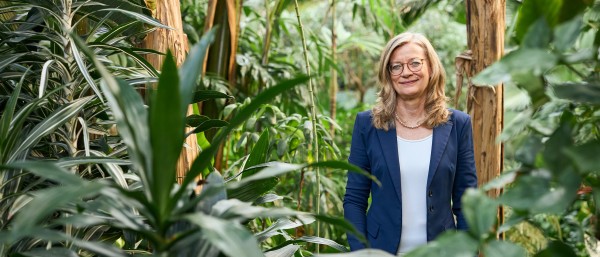
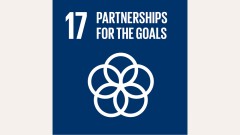

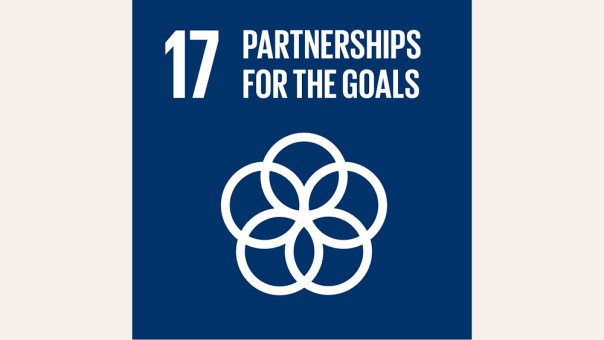

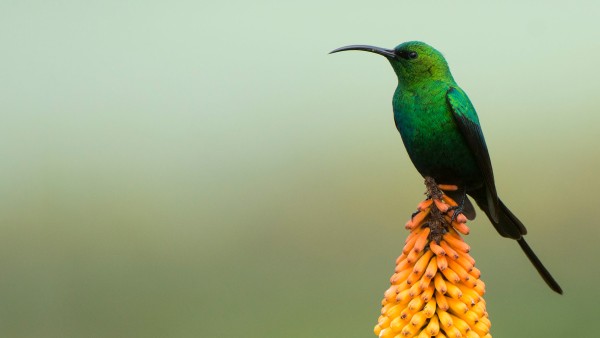
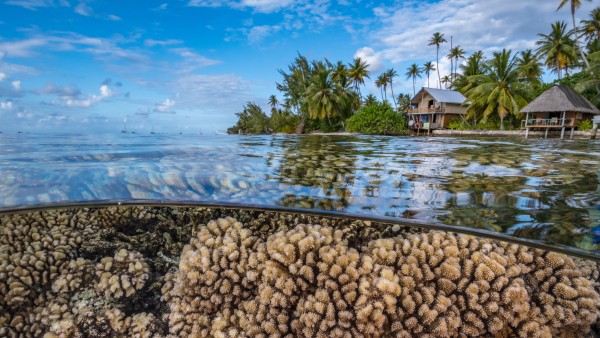
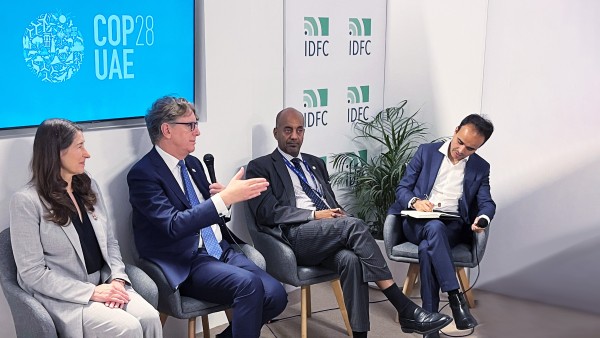
Data protection principles
If you click on one of the following icons, your data will be sent to the corresponding social network.
Privacy information